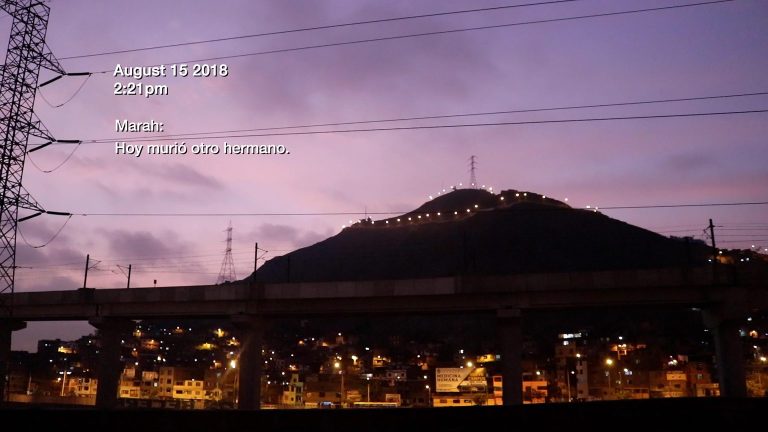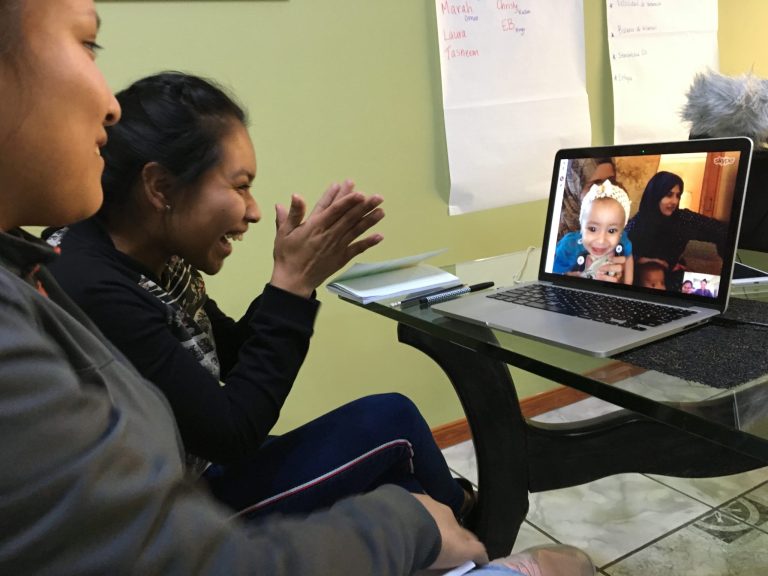ONLY THE OCEAN BETWEEN US
About the project
Links
Project team
Directors / Cinematographers
Khaldiya Amer Ali (Syria)Marah Mohammad Alkhateeb (Syria)
Christy Cauper Silvano (Peru)
Karoli Bautista Pizarro (Peru)
Producers / Editors
EB Landesberg (USA)Laura Doggett (USA)
Tasneem Toghoj (Jordan)
Lali Madueño Medina (Peru)
The process
Another Kind of Girl Collective (AKGC), a media-arts collective by and for young women living in displaced communities around the world to connect and co-create, produced Solo el mar nos separa / فقط البحر بيننا (Only the Ocean Between Us) (2021) as their first cross-border project. The film’s core team is eight women from Peru, Jordan and the US. Two of the directors are young Indigenous Shipibo-Konibo filmmakers from Peru and the other two are young Syrian filmmakers living as refugees in Jordan.
AKGC was founded in Jordan in 2014 by a group of young Syrian refugee artists, including the two Syrian directors of Only the Ocean Between Us, Khaldiya Amer Ali and Marah Mohammad Alkhateeb. AKGC co-founders Laura Doggett (USA) and Tasneem Toghoj (Jordan/USA) produced seven short films from the first AKGC workshops in Za’atari Refugee Camp, which were screened at many film festivals, including Sundance and SXSW. The Syrian filmmakers’ desire to connect with other young women in similar circumstances led to Only the Ocean Between Us.
Producer EB Landesberg (USA) had produced short films by the Peruvian directors Karoli Bautista Pizarro and Christy Cauper Silvano through workshops she led in their community in 2015. Karoli and Christy grew up in the Indigenous Shipibo-Konibo community of Cantagallo in Lima–an informal settlement, home to about 300 migrant families from the Amazon since 2000, which was destroyed by a fire in 2016. Longtime friends EB and Laura learned through their conversations how much these four women’s stories have in common despite the many differences in their surrounding landscapes. Producers EB, Laura, Tasneem and Lali Madueño Medina (Peru) have ongoing friendships with Karoli, Christy, Khaldiya and Marah rooted in these initial creative collaborations. We proposed the idea of a collaborative film to the four directors, who fell in love with the idea and wanted to start immediately.
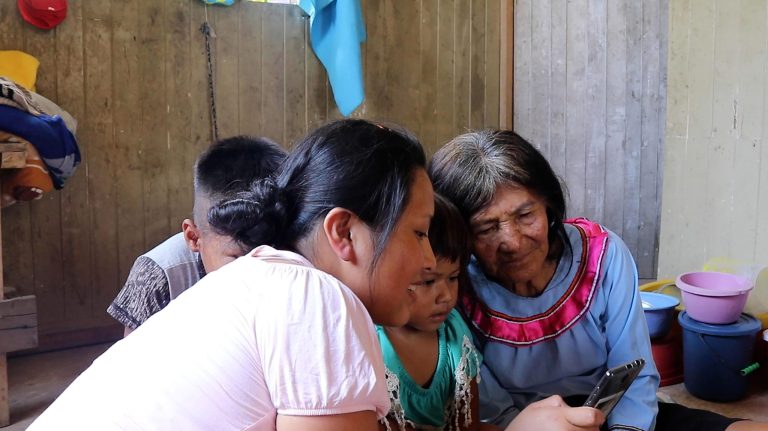
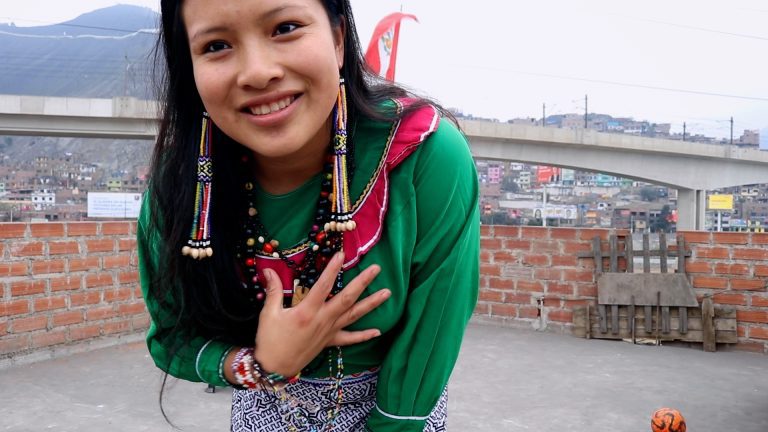

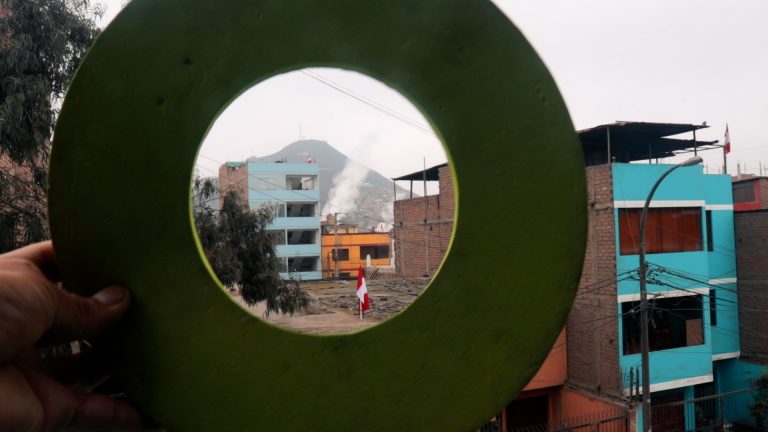




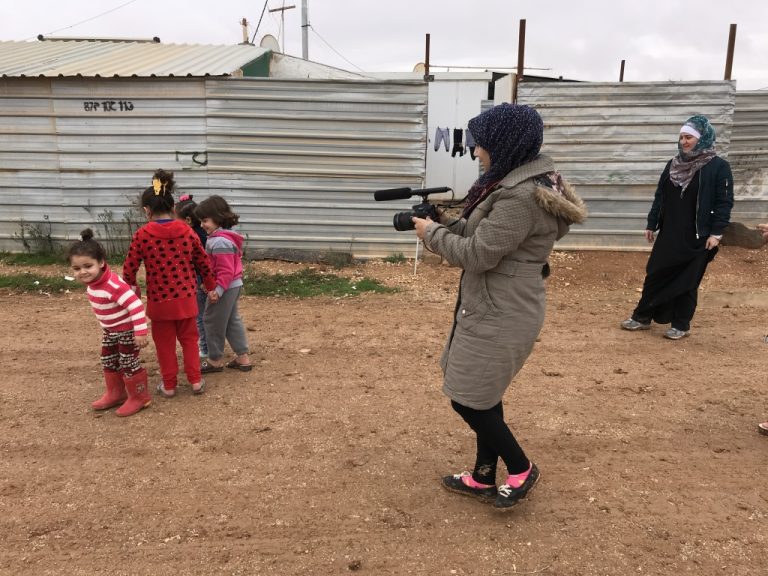

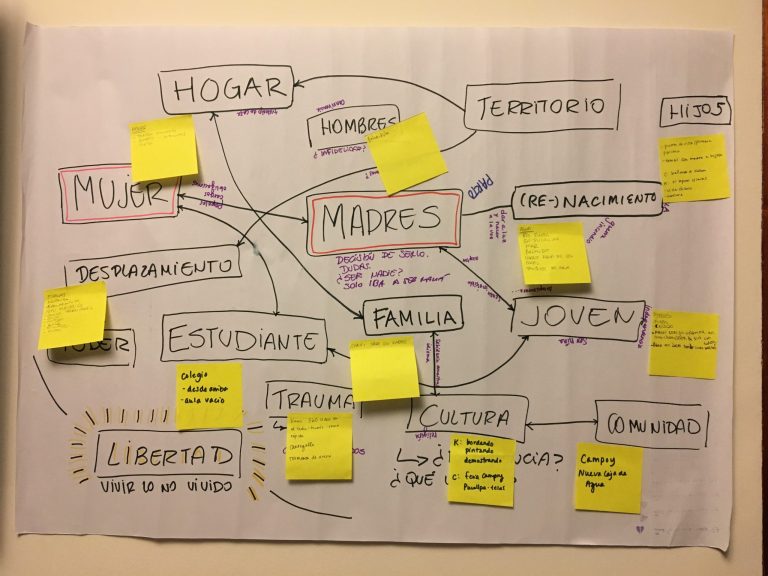

We had our first Skype call between Peru and Jordan in July 2018, and then the directors began filming their lives for each other, as well as sending audio diaries and voice notes with questions, but also just talking and getting to know each other as friends. We would exchange footage between the two countries through uploads to a shared Dropbox, and when that wasn’t possible because of internet or electricity issues, the directors would film off their camera screens with their phones and send their footage through Whatsapp. Throughout the summer of 2018, producers Laura/Tasneem (Jordan) and EB/Lali (Peru) facilitated the directors’ initial creative processes and exchanges, communication and translation, and technology. Our first group meeting was amazing for all eight of us. We all felt we were looking at reflections of ourselves across the world. Not just the directors, but the producers too. The top priority was always the relationships between the directors. Our work as producers was to build the best possible process through which to facilitate their exchanges, across languages, time zones and cultures.
The exchange developed and deepened as the directors’ curiosity and excitement about each other’s lives grew. The questions they asked each other—about their hopes, dreams, fears, children and daily life— begin to affect how each saw and understood her own life. They began responding to and even directing one another’s shots from afar, developing a shared visual language while each also developed her own style and narrative as part of the whole.
In February 2019, after logging the almost 3,000 videos, plus numerous audios and WhatsApp messages the directors had recorded and written over their years filming together, the producers and directors began editing together in Peru and Jordan with an intensive, month-long, process of mapping out the key themes, visual connections and stories. Over the next year, we would edit the film together through a collaborative process that followed the similarly collaborative process of production, experimenting and sending sequences back and forth. The process was never a straight line. All four directors continued filming throughout the editing process. Filming for one another had become such an important and natural part of their lives, so the story continued evolving, even as we were constructing it. As dramatic events in the directors’ lives continued to unfold (including the military lockdown in Cantagallo during the first wave of the pandemic), they continued filming for one another through May 2020. The film had its world premiere (virtually) in the Hot Docs Canadian International Documentary Festival, in April 2021, and has since screened in film festivals in the US, Canada, Peru, Jordan, Argentina and Finland.
The whole team was recently all together in the same place for the first time ever, to screen the film at the Karama Human Rights Film Festival in Amman, Jordan (December 10, 2021). It was a remarkable experience, and despite the uncertain global circumstances we are eager and committed to reaching more places and people with the film, after so many years of collaborating virtually. The four directors are filmmakers, mothers, cultural practitioners who have a strong desire to connect with other young women like them, and to speak to the stigma and judgements they have experienced, as well as to speak together about their collaborative filmmaking process and their friendship. In addition to continuing to distribute the film through the festival circuit, we are planning a series of regional, in-person screening tours. We are actively seeking community partners, cultural organizers, scholars, supporters, and spaces for screenings.
The work of Another Kind of Girl Collective continues. We continue to mentor and support the filmmakers who are already part of the Collective. The goal is for them to carry on this work, to be leaders and teachers for young women in their own communities. And partnering with grassroots community organization El Pueblo NOLA in New Orleans, USA, Another Kind of Girl Collective has started workshops with recently-arrived teenage girls from Honduras. We plan to begin the film’s tour with this community of young women in New Orleans, to facilitate discussion and exchange, and perhaps even another process of co-creation.
